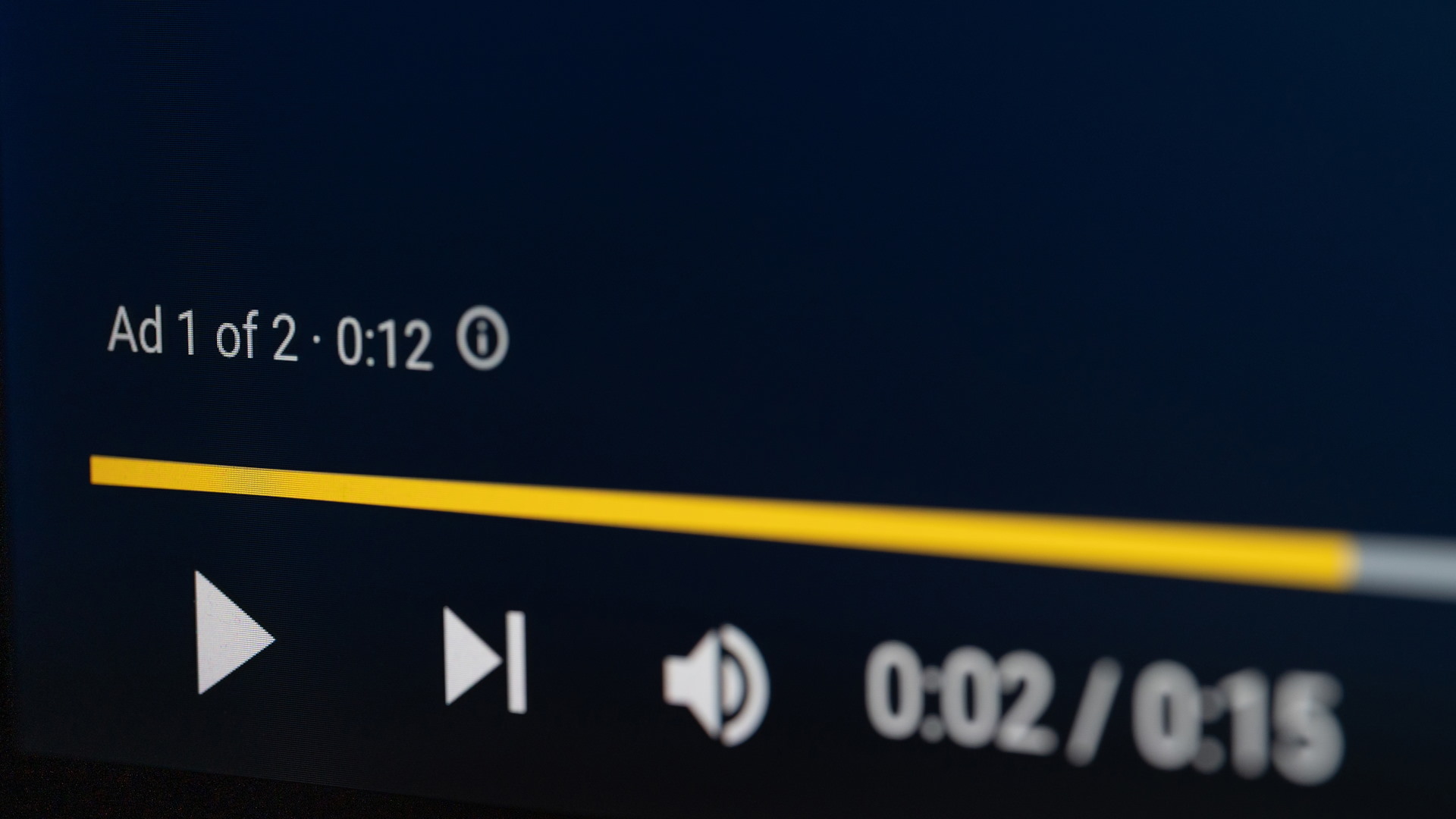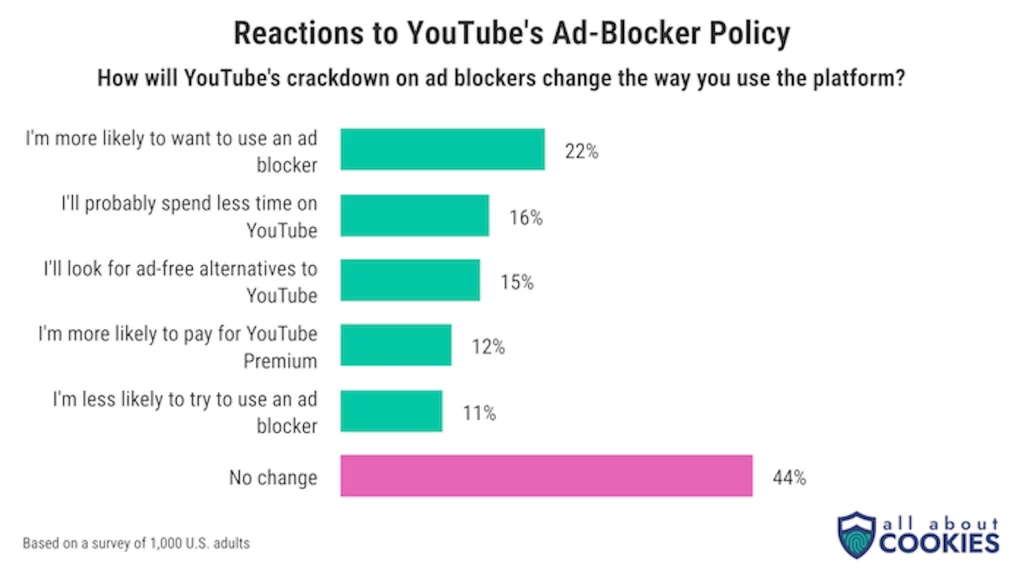
YouTube banning ad blockers is backfiring and already changing the way people use the platform
Since YouTube’s ad blocker ban was extended to a global level a month ago, users have started to complain, and new research shows that they are already changing the way they use this platform. New, but not surprising, data show the opposite effect, namely that 22 percent of surveyed users from the survey said that because of the platform’s calculation of ad blockers, the probability that they would, on the contrary, use them only increased.
Data security and privacy site All About Cookies conducted a survey of a thousand respondents who use the YouTube platform. The results of the survey show how the aggressive YouTube ban and the campaign to switch to a subscription account or allow advertising affects users. As expected, this caused a negative mood among them, which was already reflected in the way it was used.
Respondents had the option to select multiple options from a list of responses that included:
- I’ll probably use an ad blocker
- I will probably spend less time on the YouTube platform
- I will look for an ad-free alternative on the YouTube platform
- I’ll probably pay for YouTube Premium
- I’m less likely to try using an ad blocker
- There is no change in the way of use
The survey results show that 22 percent of respondents are now more inclined to use ad blockers. At the same time, 16 percent of them plan to spend less time on the platform, while 15 percent are looking for an alternative platform without ads. Only 12 percent of respondents say that YouTube metrics encourage them to subscribe to a Premium account.
 All About Cookies
All About CookiesHowever, for now, 44 percent of respondents claim that it will not change the way they currently use YouTube.
When it comes to a YouTube Premium account, most respondents are not willing to pay to use it, which offers an ad-free video viewing experience. However, some are willing to shell out a certain amount of money.
Approximately 23 percent of those surveyed are willing to pay five dollars or less, 14 percent of them would agree to $10 or less, 9 percent to $20 or less, while only 2 percent of those surveyed are willing to pay more than $20 for a subscription. Obviously, people are willing to invest energy to find a better ad blocker that can bypass the YouTube ban, and some are even willing to pay for a more advanced ad blocker.
The negative effect triggered by the YouTube ban and campaign to switch to subscription accounts is also reflected in the accusations of spying that the platform has found itself under in the European Union through lawsuits and criminal charges.